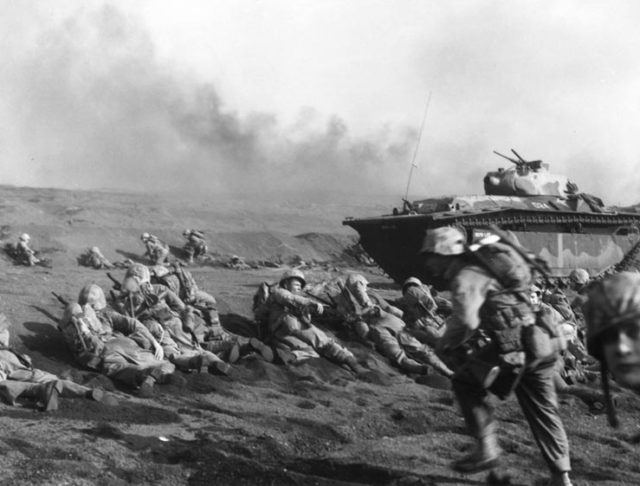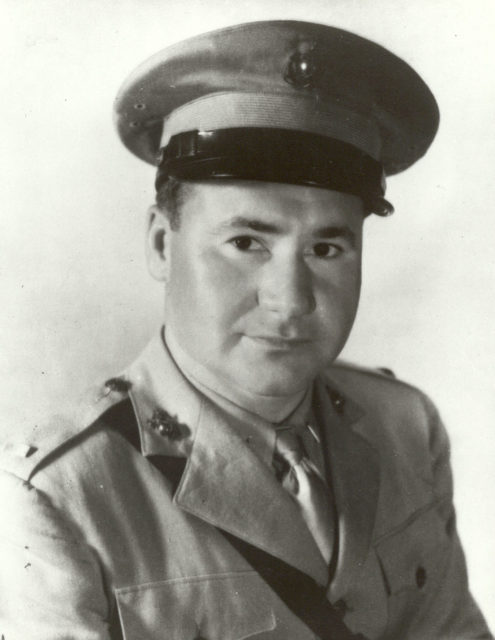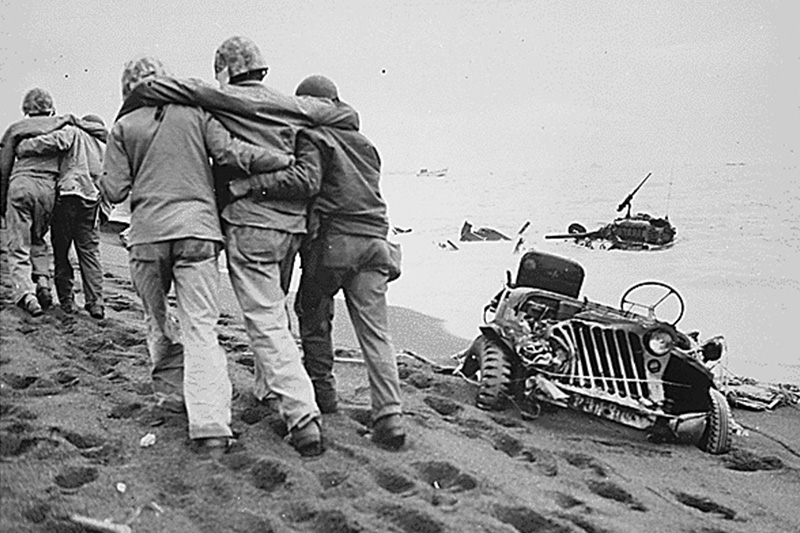For a soldier, to have made it to March 26, 1945, on the island of Iwo Jima was to have looked death in the eye. It certainly applied to the Japanese who incurred over 18,000 killed but also the Americans who had over 6,800 killed and 19,000 wounded.
After five weeks of long hard fighting, on March 26 the American Iwo Campaign officially ended. It was also the day First Lieutenant Harry Martin sacrificed his life for his Marines.
Preparations
Harry L. Martin was born on January 4, 1911, in Ohio. In 1936 he graduated from Michigan State College majoring in Business Administration. He also served for two years in the Reserve Officers’ Training Corps. Following graduation, Martin moved to Honolulu, to work for the Hawaiian Construction Tunnel Company.
With the bombing of Pearl Harbor, many Americans enlisted to do their duty for their country and Martin was no different. In 1943 he was commissioned a 2nd Lieutenant in the Marine Corps Reserve and in March 1944 was designated an Engineer Officer joining what would become known as the 5th Pioneer Battalion. He was sent to Hawaii to train for the coming invasion of Iwo Jima.
The American command saw Iwo Jima as a necessary waypoint for attacks on the Japanese homeland. The Imperial Japanese Army held the island and intended to keep it, resulting in some of the fiercest and bloodiest fighting of WWII.
Harry Martin hit the beaches on the opening day of the assault on February 19. He survived the initial onslaught as he crawled over the soft black volcanic sand and then later witnessed the raising of the flag on Mt. Suribachi. He fought and led his Marines across the island right up until the last day of the campaign. On March 1, 1945, Martin was promoted to First Lieutenant.

One Final Battle
The Americans believed the battle was over, although a few Japanese holdouts persisted among the island’s caves for years afterward. At dawn on the morning of March 26, Martin and his platoon were bivouacked in the north west of the island. Approximately 300 Japanese launched a counterattack concentrated on their position. The surprise attack penetrated the camp and left several Marines overrun and surrounded by the assaulting Japanese.
Martin’s first goal was to stop the charge. Quickly, amidst heavy gunfire, Martin organized a firing line and stalled the Japanese. His next goal was to retrieve his surrounded Marines.

With little regard for his own life, he endured intense hostile machine-gun fire to work his way through the Japanese to the besieged Marines and direct them back towards friendly lines. Wounded twice in his endeavor he killed any Japanese who tried to stop him. When four of the assaulting Japanese overran an American machine-gun position, Martin boldly charged alone with nothing but a pistol killing all four occupants.
At that point, he realized his overwhelmed Marines could not survive another coordinated assault by the Japanese. Rallying his men, he led a charge right into the face of the attack. Martin and his Marines disrupted the Japanese, but an enemy grenade found its mark, and he fell mortally wounded.
The Last Day
At 09:00 just hours after Martin died, the island was declared officially secure. Without Martin’s courageous leadership and resolve in the face of enemy fire, many Marines would never have survived that day. Inspired by his leadership, adjacent units rallied and held their lines as well. He had rallied his men to fight during one of the last skirmishes to accomplish their mission. After the 90 minute battle, they had suffered heavy casualties; 53 killed, 120 wounded.
For his actions that day Martin became one of 27 US Marines and Sailors awarded the Medal of Honor in the battle for Iwo Jima; 14 of them posthumously. Iwo Jima will forever be engrained in the minds of the US Marine Corps and Marines like Henry Martin will forever be immortalized in its legacy.
